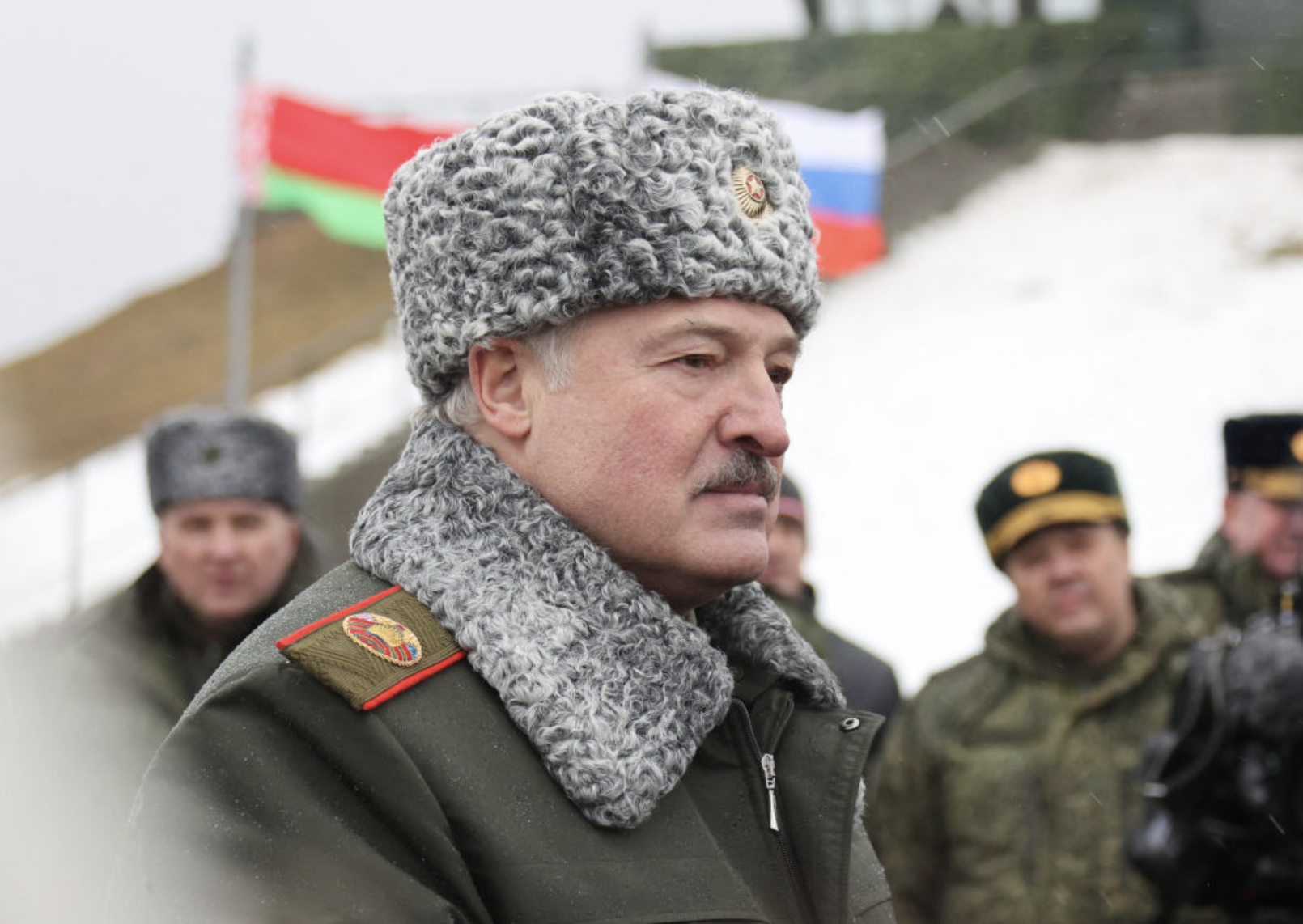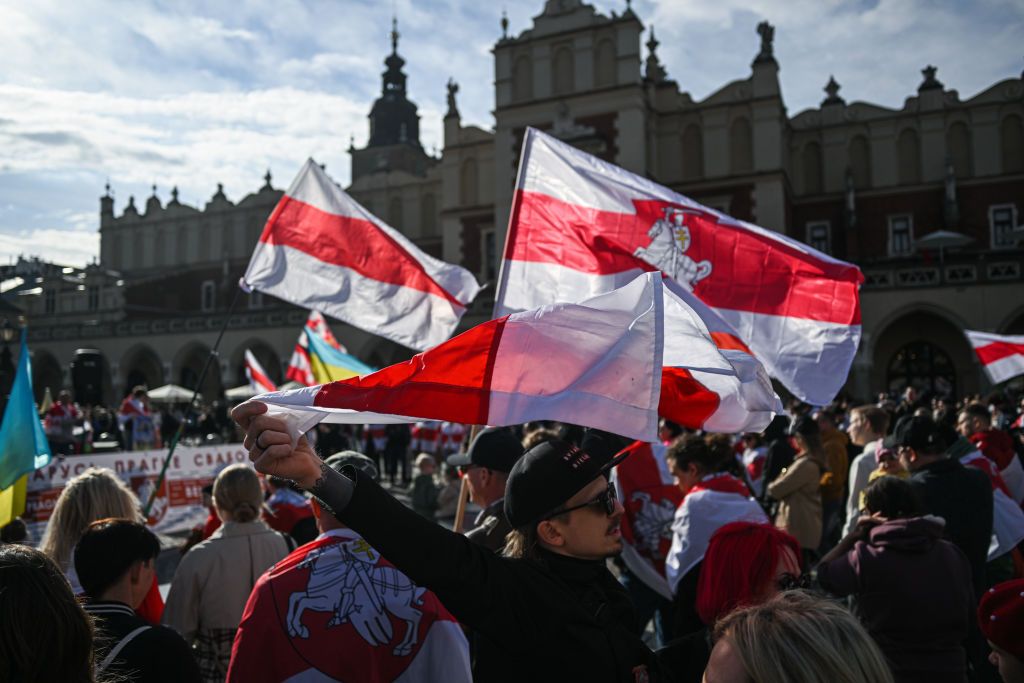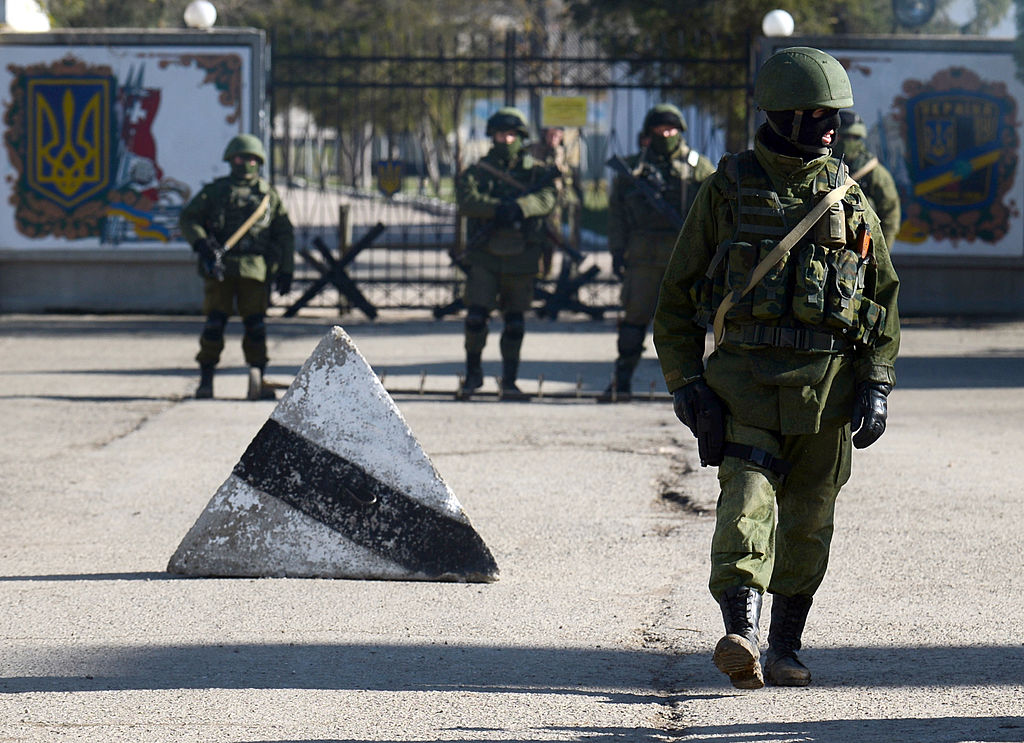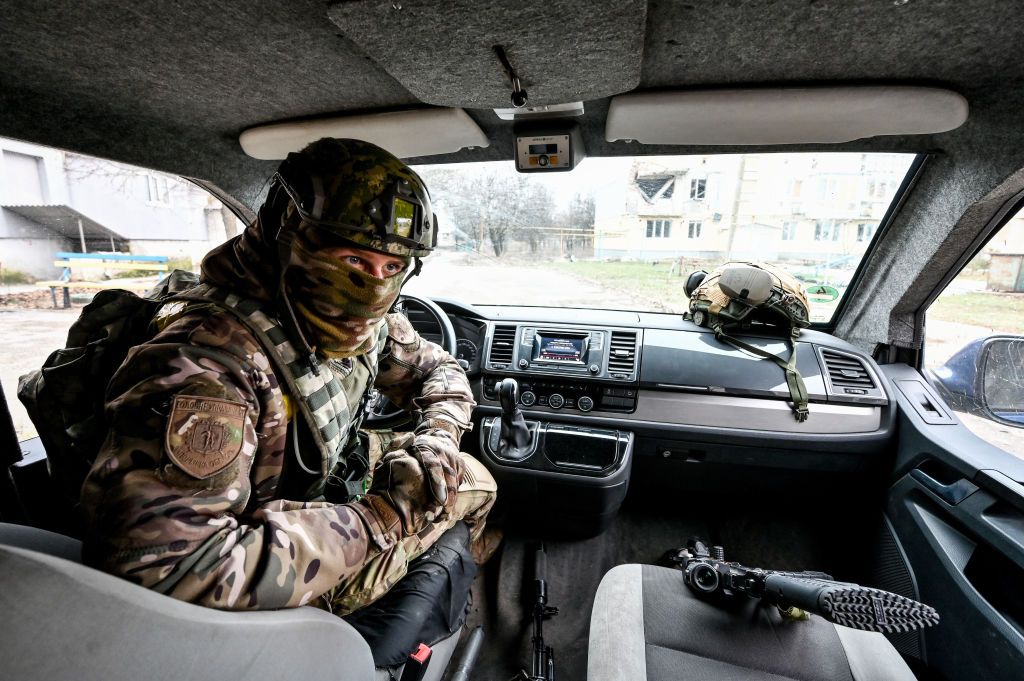Burkovsky, Zolkina: How Ukraine and the West can stop Putin’s nuclear blackmail
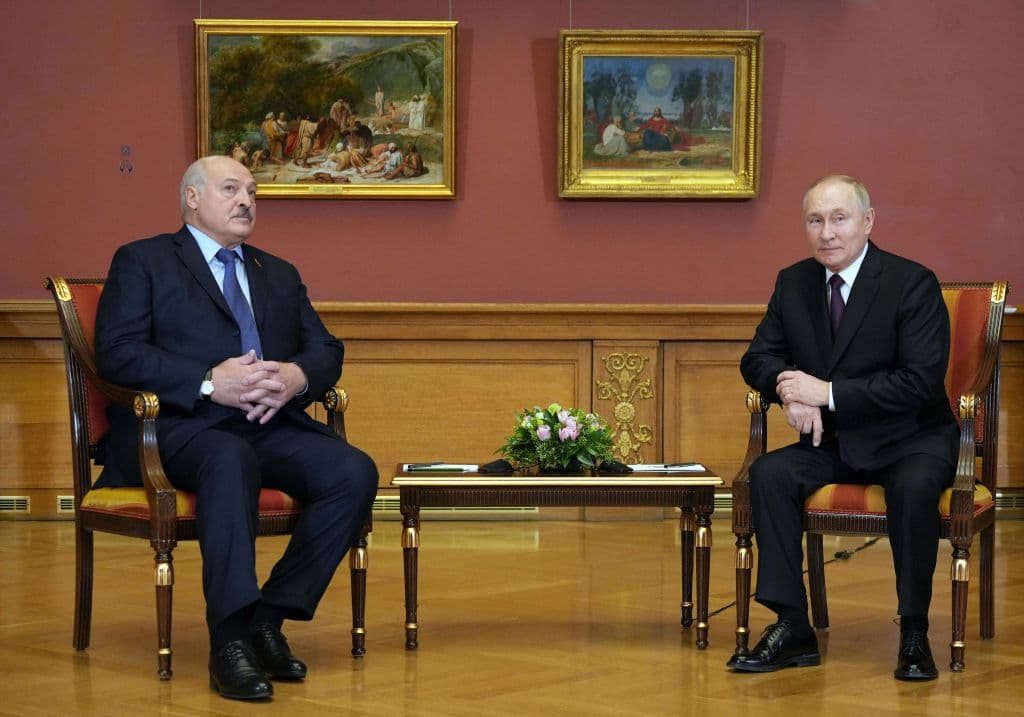
Editor's Note: The opinions expressed in the op-ed section are those of the authors and do not purport to reflect the views of the Kyiv Independent.
Putin's threats to deploy tactical nuclear weapons in Belarus reflect his goal to keep Crimea after Russia's defeat in the war.
Three days after Chinese President Xi Jinping left Moscow for Beijing, Russian President Vladimir Putin announced his intention to allow the deployment of tactical nuclear weapons to Belarus, a satellite dictatorship involved in Russia's aggression against Ukraine.
The idea to deploy nuclear weapons in Belarus is not new – Russia has been preparing for this move since 2020.
On the one hand, it can be seen as a guarantee of control over the pseudo-legitimate Lukashenko regime. On the other hand, since the beginning of Russia's invasion of Ukraine, Putin has used nuclear threats as an integral part of Moscow's Anti-Access/Area Denial (A2/AD) tactics to prevent early Western interference in and military aid to Ukraine.
Now, Putin is testing the international community's reaction to see whether his nuclear threats can influence the West's resolve to support Ukraine's counteroffensive and liberation of the territories Russia has occupied since 2014.
The Kremlin's goal remains the same: The Russian dictator wants to make an agreement with the West, bypassing Ukraine's key interests.
It is necessary for Putin to raise the stakes, since his army has not achieved its critical objectives on the battlefield, and his diplomacy attempts have failed to prevent the emergence of a broad anti-Russian coalition.
A year after the war started, Western arms supplies and financial support to Ukraine are only increasing. Ukraine's Armed Forces are training, arming, and preparing for a further counteroffensive.
Putin is thus trying to regain political and strategic leverage with the help of measures that might be interpreted as tangible nuclear threats. However, the promise to deploy tactical nuclear weapons in Belarus is the first, but not a major, step.
First, the Kremlin's announcement was designed to divert international attention from the situation in Ukraine.
Putin has tried to raise the stakes many times during his rule in order to cover his failures. Today, he wants every key Western capital to consider the threat of nuclear escalation and to reevaluate assistance to Ukraine on the eve of Kyiv's counteroffensive.
Second, the Kremlin is assessing the West's response to the potential deployment of tactical nuclear weapons to Belarus. If its response is weak, Russia will deploy them in occupied Crimea with the hope that it will change the dynamics of the war and any future negotiations.
This is a point of concern for Ukraine and its Western partners.
For us Ukrainians, Russia's nuclear blackmail will not change our plans to liberate all of our territories, including Crimea. From a strategic point of view, for as long as Russian military assets remain in Crimea, stable security and peace in the Black Sea region is impossible.
However, it is unlikely that all Western partners share the same opinion.
On the one hand, official rhetoric indicates that the full restoration of Ukraine's territorial integrity within internationally recognized borders is fully supported in the West.
However, we still hear expedient "proposals" to evaluate the feasibility of complete liberation. Some of Ukraine's Western partners may succumb to Russia's manipulation of nuclear escalation amid attempts to liberate Crimea.
For this reason, Russia has already prepared its domestic legislation regarding the conditions and justifications for a nuclear strike. The Russian leadership is now preparing the necessary informational background.
In particular, back in 2020, Putin released the "Basic Principles of State Policy of the Russian Federation on Nuclear Deterrence," which maintains that Moscow reserves the right to use nuclear weapons after "aggression against the Russian Federation with conventional weapons when the very existence of the state is threatened." Russia created the context for this even after 2014.
Additionally, Russian authorities are at pains to convince the international community that Crimea is a "special case" – a so-called "sacred cause" for Putin.
Russia has also started to actively spread the narrative that the ongoing war is a war for the very existence of Russia as a state. This was in particular emphasized by Putin during his Presidential Address to the Federal Assembly in February.
We think that the deployment of tactical nuclear weapons to occupied Crimea will be used to communicate the same message: that Ukraine's efforts to liberate Crimea are a so-called "threat" to the mere existence of Russia, and that the return of Crimea to Ukraine cannot be considered under any circumstances.
The possibility of a situation where the West will have to respond to a tactical nuclear strike on Ukraine by Russia is one that some of Ukraine's partners want to avoid at all costs. This is why Ukraine and its Western partners must act now to prevent a dangerous Russian move in Crimea.
To do this, it is necessary to make the deployment of tactical nuclear weapons technically impossible.
In particular, Ukraine needs weapon systems with the firing range to be able to hit all of the territory in occupied Crimea. It needs to be able to destroy the military infrastructure and logistics systems for Russia's ground, air, and navy assets capable of using nuclear warheads.
There are several options on the table – short-range ballistic missiles like the U.S.-produced ATACMS or the Anglo-French Storm Shadow air-launched cruise missiles.
In terms of diplomacy, discussions about providing Ukraine with long-range missiles should be conducted precisely in this vein, as a deterrence measure aimed at effectively denying Russian nuclear blackmail. This objective should ultimately prevail over the fears and uncertainty of the West regarding the liberation of Crimea.
Last but not least, delaying this decision will not only play into the hands of Russia, but also benefit China.
As long as Russia's nuclear threats remain unrestricted, China has an opportunity to sell its "honest broker" role to the West and globally, using its UN platform as it did for decades with North Korea's (DPRK) nuclear threats.
The lesson from Chinese diplomacy regarding the DPRK shows that containment does not produce results if new technologies and money continue to flow to the dictator through loopholes. Therefore, the key U.S. and EU power should not allow China to use its recent "peace proposal" to disguise Putin's aggression and mask Russian territorial gains through open nuclear threats.



